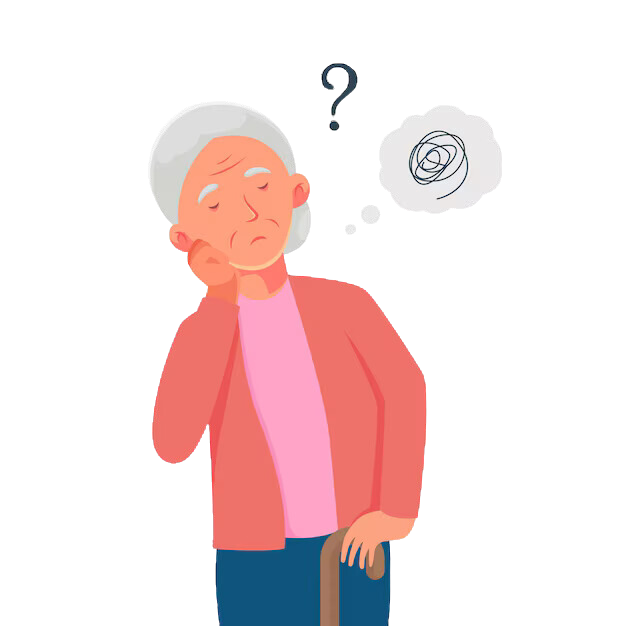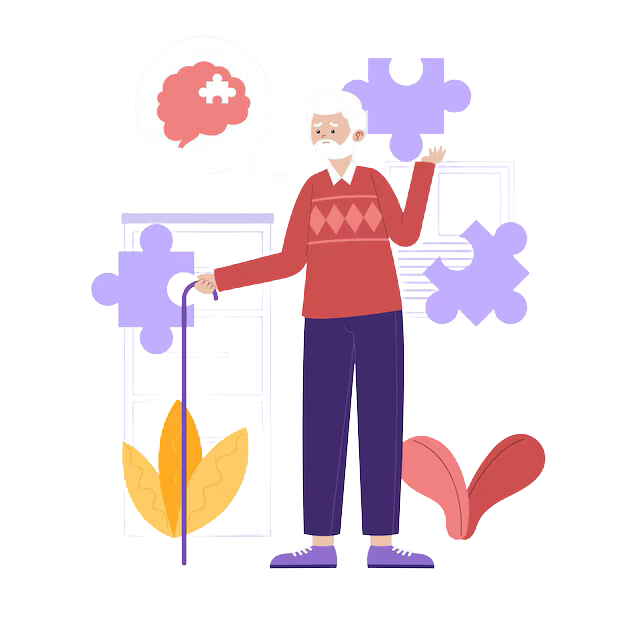A Guide to Alzheimer's Disease
- Nov 12, 2024
- 5 min read
Introduction

Neurodegenerative diseases are illnesses that occur with the progressive degeneration of the brain and the spinal cord. This leads to issues such as problems with coordination and/or mental functioning. Alzheimer’s disease is one of the most common neurodegenerative disorders in Singapore and is rapidly increasing in numbers over the years.
Alzheimer’s disease, also known as Alzheimer’s, is a common type of dementia that progresses as one ages. Symptoms of Alzheimer’s include memory loss, the loss of ability to carry out conversations and the increase in response time to the external stimuli. As symptoms worsen, Alzheimer’s can result in negative impact towards one’s ability to carry out daily activities.
Warning signs of Alzheimer's Diseases
Even though the first symptoms of Alzheimer’s often appear after the age of 60, the degeneration that occurs in the brain can begin years before the first symptoms appear. Memory issues are usually the first symptoms of Alzheimer’s. These issues are considered normal until they start to interfere with one’s daily living. For example, the elderly person may be lost in a familiar place, be unable to remember the way home, or they may ask repetitive questions. As more symptoms emerge, individuals with Alzheimer’s might even struggle to complete familiar tasks.
Stages of Alzheimer's
Mild: This is when the first symptoms occur. The individual tends to experience wandering, getting lost, taking a longer time to complete familiar tasks, and/or even personality or behavioural changes. People are usually diagnosed at this stage.
Moderate: At this stage, problems with memory loss and difficulty in coping with familiar lifestyles worsen. The individual might start to experience an inability to learn new things, carry out complicated tasks such as buttoning up a blouse, or adapting to new situations. Moreover, he/she might even experience paranoia and display impulsive behaviour resulting from fear of losing their ability to complete familiar tasks
Severe: The brain is now severely degenerated, where the brain tissues have shrunk significantly. Individuals at this stage of Alzheimer’s disease are not able to communicate, and are completely dependent on others for care. Parts of the body might begin to “shut down” as the brain has lost its ability to control activities carried out by different body parts.
Ways to prevent or delay Alzheimer's
*These are some suggestions on what one can do to prevent Alzheimer’s. However, it is also important to maintain a healthy lifestyle with quality sleep, effective stress management, engaging in relaxation activities and regular exercise.
1. Having a Healthy Diet
Research suggests that extra body weight is a risk factor for Alzheimer’s. Thus, it is important to maintain healthy eating habits to protect the brain. This includes managing your weight, reducing on sugar consumption, and maintaining a Mediterranean diet. Alcohol consumption should also be controlled as heavy alcohol consumption is said to increase the risk of Alzheimer’s disease as it speeds up brain aging.
2. Staying Socially Engaged
Alzheimer’s can be prevented or slowed down for individuals who are socially active. Research suggests that social engagement is correlated with brain health due to mental and intellectual stimulation. This can improve the immune system and delay cognitive deterioration. Examples of social engagement can be as simple as getting to know your neighbours, taking up group classes that are held in local community centres or senior centres. Activities such as dance classes, aerobics classes and culinary classes held in community centres can allow the brain to continue its functioning by learning new things.
3. Doing Mental Activities

Learning new things and doing challenging, complicated tasks can keep the brain active and prevent degeneration. Research suggests that older adults who engage with activities that involve multitasking, communication and organization tend to improve their cognitive functioning, which would prevent Alzheimer’s.
Examples of mental activities include learning something new. As mentioned above, joining classes in community centres and senior centres can maintain brain stimulation, especially if it involves learning something new. Learning new things, complex and challenging skills can result in greater benefit in preventing Alzheimer’s. Individuals can also keep their brain active by enjoying strategy games such as mahjong, puzzles and riddles as these provide a mental workout.
Supporting Elderly with Alzheimer's
Realising that a family member has Alzheimer’s can be disheartening and distressing. It can be challenging for family members to provide care for their loved ones with Alzheimer’s while knowing that their condition would only worsen. Furthermore, as symptoms worsen, the care for the individual has to intensify. However, care by family members can be a positive experience for both the caregiver and the receiver. Below are some tips on how to support and care for individuals with Alzheimer’s:
1. Acceptance
Allow yourself and the individual diagnosed to process the diagnosis and the news. Give time for each and everyone to transition to the new situation and even allow yourselves to grieve.
Allow negative emotions to emerge in the transitioning stage, but always remember to deal with them. It is important to deal with emotions, such as sadness, frustration, grief, denial and fear. Constantly provide encouragement to the diagnosed individual and allow them to express their emotions. Constantly remind them to continue pursuing meaning and purpose in life. If you notice that the diagnosed individual or yourself may require more professional support, speak to the doctor or a clinician.
2. Keep a Structured Routine
It can be challenging to provide constant care for individuals with Alzheimer’s. Keeping a consistent and structured schedule for daily activities such as meal time, activity schedule and bed time can help keep the both you and the diagnosed individual orientated.
In order for the individual with Alzheimer’s to get a grasp of this routine, it is also recommended to use auditory or visual cues to establish different times of the day. For instance, letting them recognise that opening the curtain means it's morning, and playing calming music indicates bedtime.
This routine should also include mentally stimulating activities in order to slow down the deterioration of the person’s condition. These activities may include several types of outdoor activities, playing puzzles, reading, dancing and other tactile activities.
3. Encourage Social Engagement
It is important for individuals with Alzheimer’s to maintain social engagement. Having friends come over to spend time with the individual, and/or planning events such as family dinners, or festive parties can stimulate one’s cognitive functioning through human communication and interaction.
4. Do Not Feel Shy To Seek Help
Caregiving for individuals with Alzheimer’s intensifies with time, and it might get overwhelming for caregivers. At times like these, the caregiver should not shy away from social support. They can reach out to formal and/or informal support sources.
There are a number of social support resources that are available in Singapore that provide advice for family caregivers who need help or comfort from the struggle of providing care to their family members with Alzheimer’s. These social support groups provide interaction between different caregivers and receivers, and the opportunity to obtain advice from experienced care teams.
Contact Info Of Support Groups
1) Dementia Support Group Email: ktph.memorycare@alexandrahealth.com.sg
2) Dementia, Singapore (English, Mandarin and Malay Sessions) Tel: 63770700 Email: registration@alz.org
3) Nini Dementia Support Group (TTSH Campus) Tel: 63306363 Email: appointments@nni.com.sg
4) Nini Dementia Support Group (SGH Campus) Tel: 63214377 Email: appointments@sgh.com.sg
Written by: Agnes Tan | Edited by: Xavierlyn Tan | Designed by: Wong Su Ting




Comments